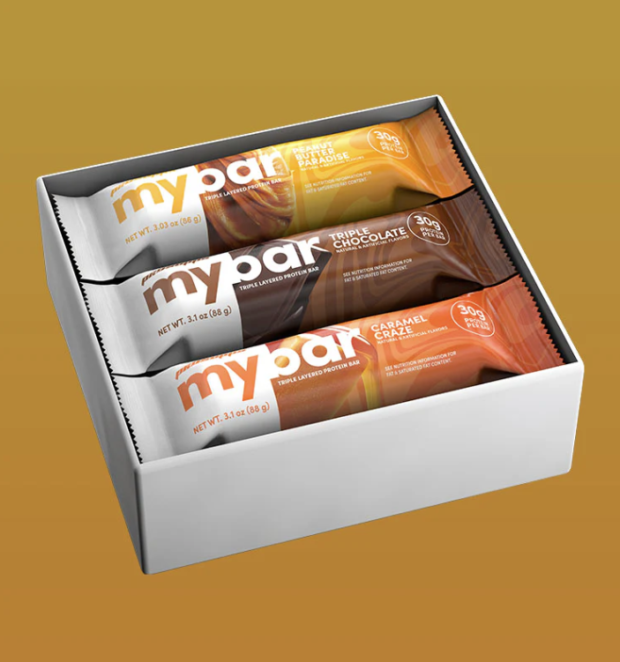Everything You Need to Know About Protein Bars
If you’ve ever wandered down the nutrition aisle at your local grocery store, you’ve probably noticed the wide variety of protein bars lining the shelves. From chocolate-covered to fruit-flavored, there’s a protein bar out there for everyone. But with so many options, how do you choose the right one? And more importantly, are protein bars as good for you as they claim to be?

What Are Protein Bars?
At their core, protein bars are a type of nutritional supplement designed to provide a convenient source of protein, which is essential for muscle repair, immune function, and overall health. These bars usually contain a blend of protein sources such as whey, soy, or pea protein, combined with carbohydrates, fats, and other ingredients like fiber, vitamins, and minerals.
While some people use protein bars as a quick snack or a meal replacement, others rely on them to boost their protein intake, especially if they’re following a high-protein diet or are active in sports and fitness.
The Benefits of Protein Bars
One of the primary benefits of protein bars is their convenience. They’re portable, non-perishable, and can be eaten quickly, making them a great option for busy people on the go. Whether you’re rushing between meetings, heading to the gym, or need a post-workout snack, a protein bar can provide a quick and easy source of nutrition.
But convenience isn’t the only advantage. Protein bars can also be an effective way to help manage your weight. Since protein helps you feel fuller for longer, snacking on a protein bar can help curb hunger and prevent overeating later in the day. This is particularly useful if you’re trying to lose weight or maintain a healthy weight.
Moreover, for those who have dietary restrictions or are following specific diets, like vegetarian or vegan diets, protein bars can be a valuable source of protein that might otherwise be challenging to obtain.
How to Choose the Right Protein Bar
Not all protein bars are created equal. With so many choices, it’s crucial to know what to look for when selecting the best one for your needs. Here are some factors to consider:
1.Protein Content
If your primary goal is to increase protein intake, look for a bar with at least 10 grams of protein per serving. For those who are highly active or trying to build muscle, bars with 20 grams or more might be more appropriate.
2. Ingredients
Check the ingredients list for quality. Ideally, you want a protein bar with a short list of recognizable ingredients. Avoid bars with a lot of artificial additives, preservatives, and high amounts of added sugars.
3. Calories and Macronutrients
Depending on your dietary goals, pay attention to the number of calories and the balance of macronutrients (proteins, fats, and carbohydrates) in the bar. If you’re using the bar as a meal replacement, you might need something more calorie-dense with a balanced profile. For a snack, a lower-calorie option might be better.
4. Dietary Restrictions
If you have specific dietary needs, such as gluten-free, dairy-free, or vegan, make sure to choose a protein bar that fits those requirements. Thankfully, many brands now offer options that cater to various dietary restrictions.
When Should You Eat Protein Bars?
Timing your protein intake can make a difference, especially if you’re using protein bars to support your fitness goals. Here are a few situations when reaching for a protein bar might be beneficial:
- Post-Workout Recovery: Consuming protein after a workout helps repair and build muscle. A protein bar can be a convenient option if you’re unable to have a full meal right after exercising.
- Midday Snack: If you find yourself hungry between meals, a protein bar can provide a satisfying snack that tides you over until your next meal, without the sugar crash that comes from less nutritious options.
- Meal Replacement: While not ideal for every meal, a protein bar can occasionally serve as a meal replacement if you’re in a hurry. Just make sure it’s a bar that’s higher in calories and has a good balance of nutrients to keep you full.
Potential Downsides of Protein Bars
While protein bars can be a healthy snack or meal replacement, they’re not without their downsides. Some protein bars are high in sugar and contain artificial ingredients, which can counteract their health benefits. Always read the label and choose bars that are made with wholesome ingredients and minimal added sugars.
Additionally, relying too much on protein bars rather than whole foods can lead to a lack of dietary variety, which is essential for getting a wide range of nutrients. Protein bars should complement your diet, not replace whole, nutrient-dense foods like fruits, vegetables, lean meats, and whole grains.
Conclusion
Protein bars can be a great addition to your diet, providing a convenient source of protein and other nutrients. However, like any food, it’s essential to choose wisely and understand what you’re consuming. By paying attention to the ingredients and nutritional content, you can find a protein bar that meets your needs and supports your health
